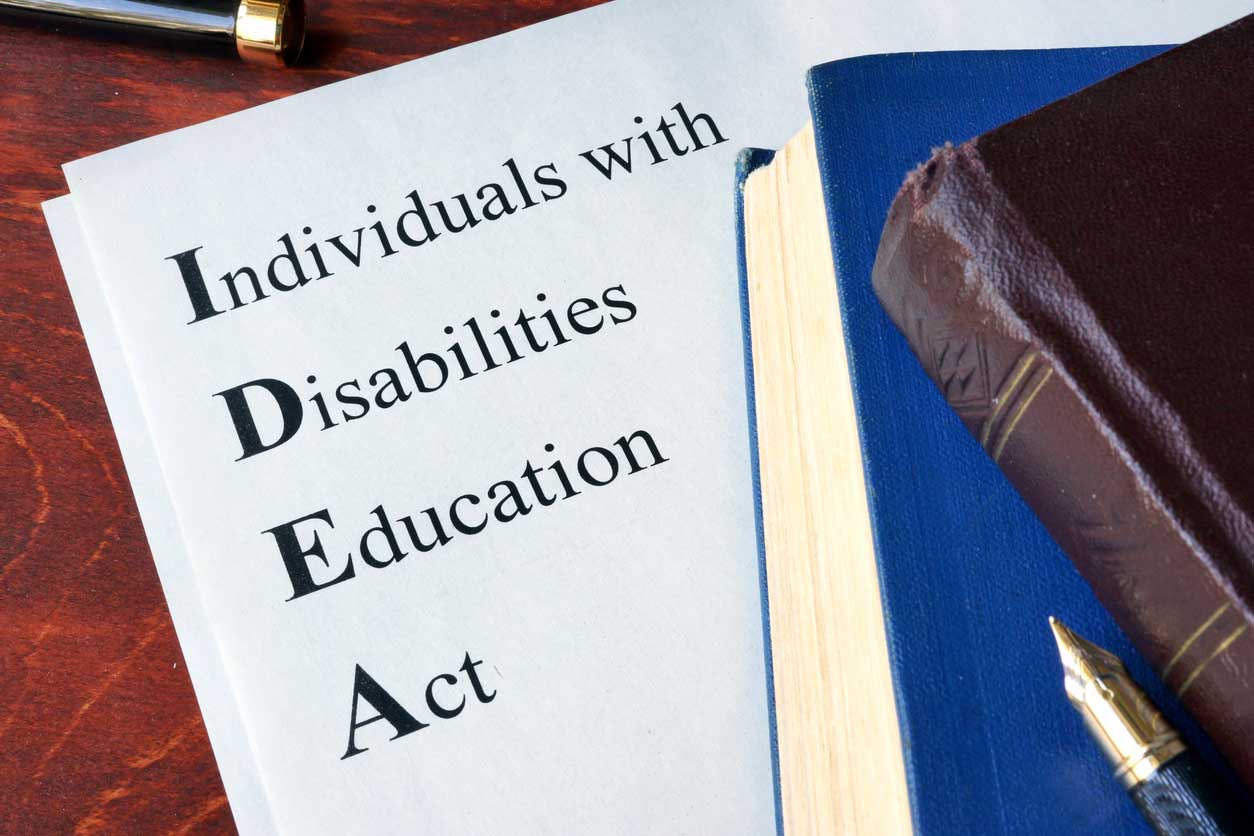
 Special education laws at the state and federal level give special needs children and their parents numerous legal rights. The Individuals with Disabilities Act (IDEA) represents the legal backbone for federal special education law.
Special education laws at the state and federal level give special needs children and their parents numerous legal rights. The Individuals with Disabilities Act (IDEA) represents the legal backbone for federal special education law.
IDEA mandates school districts must test or assess the special education needs of eligible children. Parents have the right to review school records to determine if their children qualify for an “Individualized Education Program,” as well as attend meetings with school faculty and administrators to create a formal written plan that presents step-by-step methods for integrating special needs students within the general school population. Some school district employees might attend one of more of the IEP meetings. Parents also have the right to submit disputes that a neutral arbitrator oversees.
Some students simply take longer to learn certain subjects, while other students possess disabilities that severely impede learning in a classroom. Every public school district in the United States has the legal responsibility to identify and evaluate children that might be eligible for the development of an IEP. After evaluating a student, the school district creates and implements programs tailored to meet the unique needs of individual students. Under the IDEA statute, children that possess one or more disabilities are between the ages of three and 22. The disabilities covered under IDEA include mental, hearing, speech, visual, and language impairment. Autism, severe emotional distress, and traumatic brain injuries also fall under IDEA definitions for disabilities.
Remember that parents must supply evidence of one or more child disabilities, with the emphasis on demonstrating the disabilities negatively impact educational progress. After a child receives approval for an IEP, school faculty and administrators must evaluate the child one time every three years. This is an important point, since some victims of traumatic brain injury and some types of impairment experience slight to moderate improvements in the symptoms of the disabilities.
Enacted by the United States Congress, IDEA has undergone numerous changes. The most dramatic changes to the original special education law occurred during the 2005 congressional session. Congress made significant changes to IDEA, without altering the special education rights enjoyed by special needs children. The modifications to IDEA include establishing teacher qualifications for special education, as well as providing guidelines for teaching methods and the establishment of transition services. In fact, Congress wrote clear language into the revamped IDEA that encourage special education teacher to transition qualified students out of special education programs and back into general school curriculum programs. The review process for creating IEPs includes more focus on transition services as well.
Parents have several resources to help them navigate complex state and federal special education laws. Your school district should be the first resource to contact, especially when it comes to questions about creating an IEP. Many school districts encourage the formation of parent support groups that offer helpful information about every facet of IDEA, including changes to the landmark special education law. The United States Department of Education Office of Special Education and Rehabilitative Services (OSERS) operates a website that presents information about IDEA and the development of an IED. The California Department of Education also shares information about IDEA, as well as lists state special education statutes that offer more services for special needs children.
If you feel your school district has neglected to properly identify and evaluate your special needs child, you should contact an education law attorney who specializes in litigating special education cases. Our law firm has established a strong record of representing parents in their fight to seek special education status for their children.